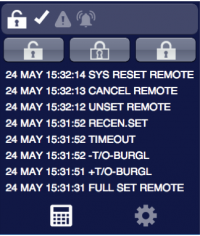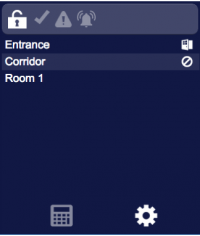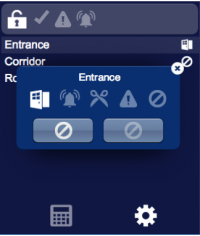Difference between revisions of "Galaxy (I/O Server Object)"
Jump to navigation
Jump to search
m (Manuela moved page Galaxy (UI Object) to Galaxy (I/O Server Object)) |
|||
| (One intermediate revision by one other user not shown) | |||
| Line 10: | Line 10: | ||
For further details refer to the [[Galaxy|Galaxy I/O Server Application Note]]. | For further details refer to the [[Galaxy|Galaxy I/O Server Application Note]]. | ||
</noinclude> | </noinclude> | ||
| − | == Parameters == | + | |
| + | <includeonly>==</includeonly>== Parameters ==<includeonly>==</includeonly> | ||
*'''server id''': the server ID | *'''server id''': the server ID | ||
*'''group number''': | *'''group number''': | ||
*'''position''': the object's position. Use the pixels or rows and columns coordinates format | *'''position''': the object's position. Use the pixels or rows and columns coordinates format | ||
| − | == Syntax == | + | <includeonly>==</includeonly>== Syntax ==<includeonly>==</includeonly> |
(galaxy <server id>; <group number>; <position>) | (galaxy <server id>; <group number>; <position>) | ||
E.g. | E.g. | ||
(galaxy serverid; group number; x10y20) | (galaxy serverid; group number; x10y20) | ||
Latest revision as of 09:58, 17 July 2014
The user interfacce for the Galaxy multi-area intrusion detection system:
The Galaxy object is listed in the Project Editor’s new object list only when at least one Galaxy I/O Server is defined.
For further details refer to the Galaxy I/O Server Application Note.
Parameters
- server id: the server ID
- group number:
- position: the object's position. Use the pixels or rows and columns coordinates format
Syntax
(galaxy <server id>; <group number>; <position>)
E.g.
(galaxy serverid; group number; x10y20)


